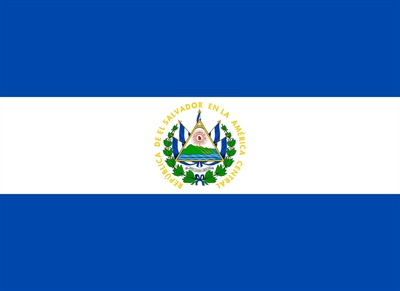El Salvador - CEDAW (List of Issues) - Violence Against Women - July 2016
Country: El Salvador
Type: Intl Mechanism Submission
Issues: Bias and Discrimination, Gender-Based Violence, International Advocacy, LGBTIQ+ Rights, Policing, Women's Rights
Mechanism: UN Committee on the Elimination of Discrimination against Women
Report Type: List of Issues
In June 2016, The Advocates for Human Rights submitted a report of suggested issues and questions to the Committee on the Elimination of All Forms of Discrimination Against Women (CEDAW) on violence against women in El Salvador. The report was submitted in anticipation of the Committee's pre-sessional working group July 25-29, 2016, during which time it will prepare list of issues prior to reporting for its upcoming review of El Salvador's compliance with the CEDAW.
El Salvador reported more than 4,500 cases of violence against women in the first 11 months of 2015. The National Civil Police reported that there were 575 femicides in 2015, almost double the number of femicides reported in 2014. Despite increasing rates of the crime, the rate of impunity for femicide is about 77 percent in El Salvador. Domestic violence and other crimes against women are considered socially acceptable by a large portion of the population. Human rights reports document that violence against women in El Salvador is underreported due to societal pressures on victims, fear of reprisal, and a belief among victims that the laws would not be enforced.
Gender-based discrimination in El Salvador contributes to high levels of domestic violence, rape, and other crimes of violence against women. A female victim's statements are often given little credibility, contributing to the low conviction rate for offenders. The legal system and policies fail to: 1) protect women from violence, 2) provide victims with the necessary support, and 3) hold perpetrators accountable. The government of El Salvador has implemented some mechanisms to combat violence against women, but problems with enforcement prevent domestic legislation from being effective. The "2012 Law" criminalizes domestic violence and sexual assault and provides prison sentences for violations, but none of these initiatives have been adopted.
The Advocates interviewed women survivors who fled gender-based violence about their experiences in El Salvador. These women provide substantial claims used in the report. Many of the women reported violence against them by their intimate partners and chose not to go to the police due to fear of retribution as well as lack of police protection. LGBT individuals are also subject to harassment by state officials and experience violations of rights, including access to education and employment. Many of the interviewees reported that the police were connected with gangs. Gang violence has contributed to El Salvador's record as the country with the highest murder rate of women in the world. Flaws in El Salvador's legislation and its implementation have resulted in a systemic failure to protect victim safety and promote offender accountability.
In the report, The Advocates recommended that the Committee pose several questions to the government of El Salvador in preparation for the upcoming review, including:
- What steps is the State party taking to establish a comprehensive program to protect women from violence, including public education, effective prosecutions, and training for law enforcement, investigators, prosecutors, and judges?
- What resources and support are available to women survivors of violence to get aid from the police and relief from the justice system?
- What steps has the State party undertaken to prevent the spread of gang violence against women?
- What steps is the State party taking to curb police violence against LGBT individuals?




